Find Help
More Items From Ergsy search
-
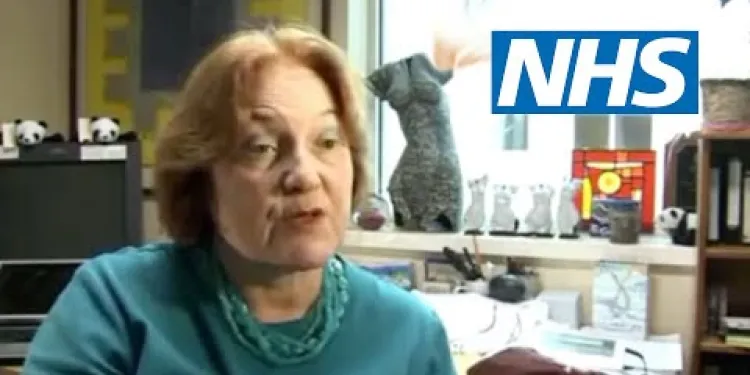
Anorexia nervosa | NHS
Relevance: 100%
-
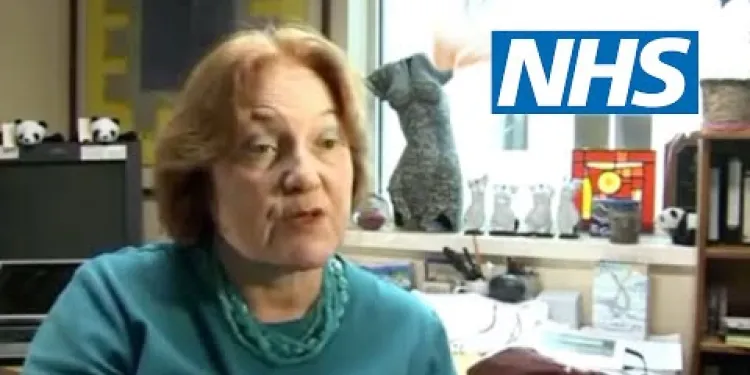
Anorexia nervosa | NHS
Relevance: 100%
-
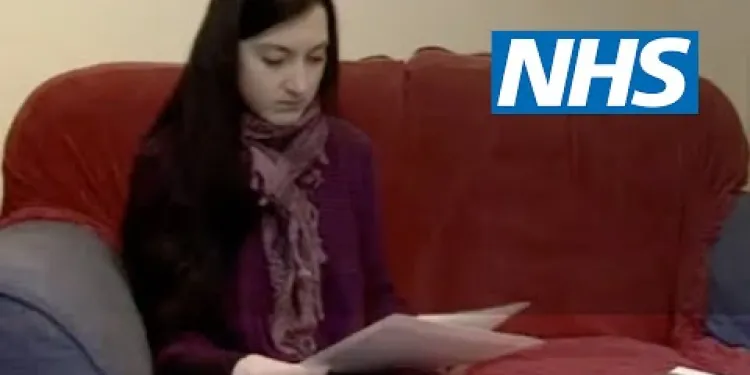
Anorexia: Katie's story | NHS
Relevance: 55%
-
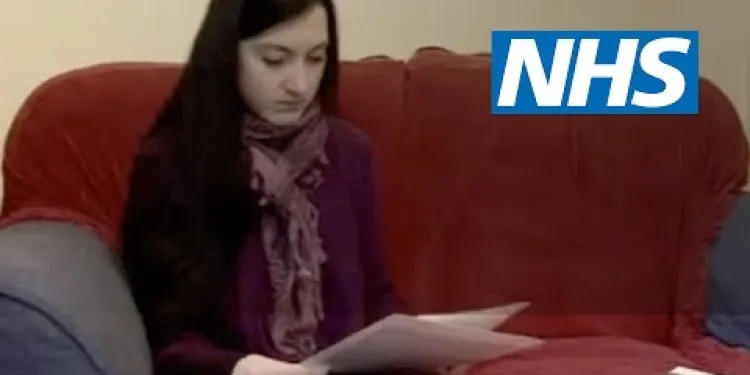
Anorexia: Katie's story | NHS
Relevance: 54%
-
What are the main types of eating disorders?
Relevance: 39%
-
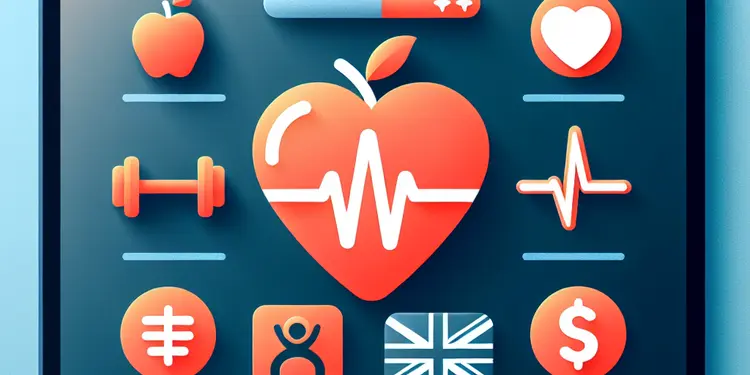
What is the impact of eating disorders on physical health?
Relevance: 38%
-
What is an eating disorder?
Relevance: 31%
-
What are the long-term effects of untreated eating disorders?
Relevance: 28%
-
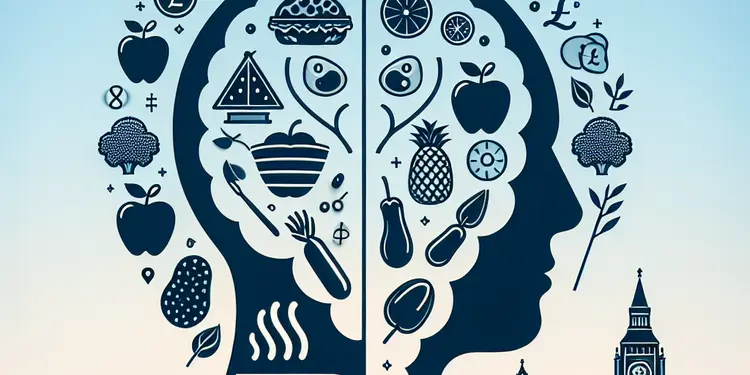
How do eating disorders affect mental health?
Relevance: 28%
-
How are eating disorders diagnosed?
Relevance: 24%
-
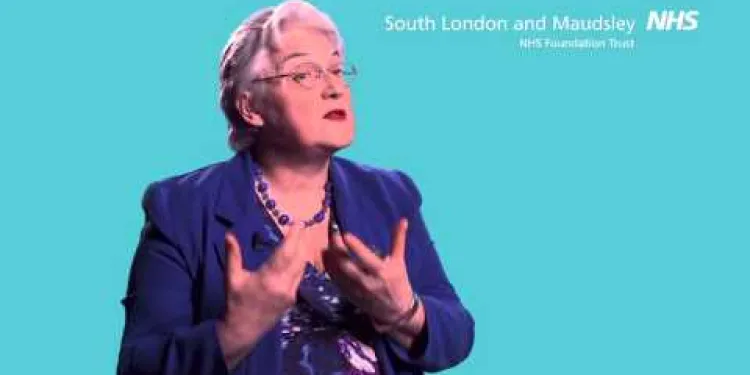
Eating disorders: treatment
Relevance: 22%
-
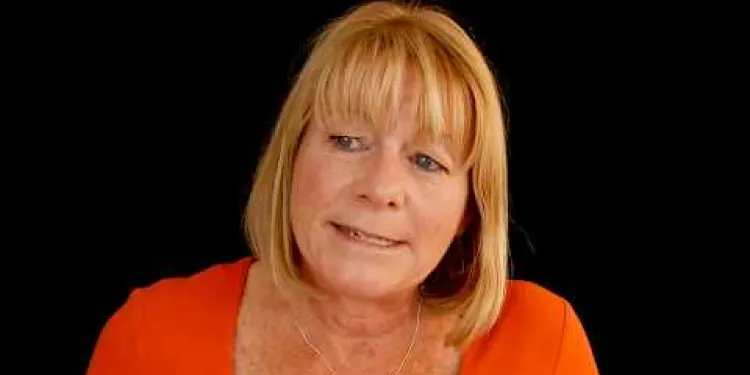
The treatment approach for an eating disorder
Relevance: 22%
-

Jess Rann - Specialist Eating Disorders Dietitian
Relevance: 22%
-
What is an Eating Disorder?
Relevance: 21%
-
What is body dysmorphia and how is it related to eating disorders?
Relevance: 19%
-
Can eating disorders be treated?
Relevance: 16%
-
What are common symptoms of eating disorders?
Relevance: 15%
-
How can someone help a loved one with an eating disorder?
Relevance: 15%
-
What is the role of therapy in treating eating disorders?
Relevance: 15%
-
Who is at risk for developing an eating disorder?
Relevance: 14%
-
Are eating disorders only about food?
Relevance: 14%
-
Are there preventative measures for eating disorders?
Relevance: 14%
-
Is it possible to recover from an eating disorder?
Relevance: 6%
-
Can eating disorders occur with other mental health conditions?
Relevance: 6%
-
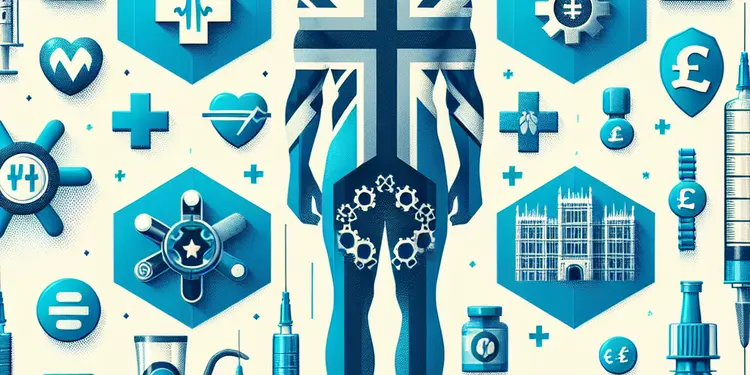
Are there any medical conditions that disqualify someone from using weight loss jabs?
Relevance: 6%
Anorexia Nervosa
What is Anorexia Nervosa?
Anorexia nervosa is a serious mental health condition and eating disorder characterized by an intense fear of gaining weight, leading individuals to restrict their food intake and develop an extremely low body weight. People with this condition often have a distorted body image, perceiving themselves as overweight even when they are dangerously underweight. This disorder can affect anyone, regardless of age, gender, or background, but it is most commonly observed among teenage girls and young women.Signs and Symptoms
The symptoms of anorexia nervosa can be both physical and psychological. Physically, individuals may experience significant weight loss, fatigue, dizziness, thinning hair, and amenorrhea (absence of menstruation in women). Psychologically, symptoms include an obsession with food, calories, and dieting, as well as a refusal to maintain a healthy body weight. Individuals might also engage in excessive exercise, use of laxatives, and other methods to prevent weight gain.Causes and Risk Factors
The exact cause of anorexia nervosa is not known, but it is thought to involve a combination of genetic, environmental, and psychological factors. Risk factors include a family history of eating disorders, other mental health conditions like anxiety or depression, societal pressures to be thin, and personal traits such as perfectionism and obsessive-compulsive tendencies. Traumatic experiences and cultural influences can also contribute to the development of this disorder.Treatment and Support
Treatment for anorexia nervosa typically involves a multidisciplinary approach, including medical care, nutritional counseling, and therapy. Cognitive-behavioral therapy (CBT) is commonly used to address the distorted thinking patterns and behaviors associated with the disorder. Family-based therapy (FBT) can also be beneficial, particularly for younger patients. In severe cases, hospitalization may be required to address life-threatening complications and to stabilize the individual's health.Support Resources in the UK
In the United Kingdom, the NHS offers a range of services for individuals with anorexia nervosa. These services include outpatient treatment programs, inpatient care, and specialist clinics dedicated to eating disorders. Support groups and online resources provided by organizations like Beat (the UK’s leading eating disorder charity) can also offer invaluable support for sufferers and their families. If you or someone you know is struggling with anorexia nervosa, it is important to seek professional help immediately.Anorexia Nervosa
What is Anorexia Nervosa?
Anorexia nervosa is a health problem that affects the mind and eating habits. People with anorexia are very afraid of gaining weight, so they eat very little. They can become very thin, but still think they are overweight. Anyone can have anorexia, but it often happens to teenage girls and young women.Signs and Symptoms
Anorexia has signs that you can see and others that affect the mind. People with anorexia lose a lot of weight. They might feel very tired and dizzy. Their hair might get thin, and girls may stop having their periods. They might think a lot about food and counting calories. They may refuse to eat enough to stay healthy. Some people with anorexia exercise too much or use medicines to try to stay thin.Causes and Risk Factors
We do not know exactly why people get anorexia. It is probably caused by different things like genes, family history, and feelings. Some things that make anorexia more likely are having family members with eating problems, being anxious or sad, wanting everything to be perfect, or feeling pressure to be thin. Bad experiences or seeing skinny models in magazines can also lead to anorexia.Treatment and Support
Treating anorexia needs a team of helpers. This includes doctors, nutrition experts, and counselors. One type of help is called cognitive-behavioral therapy (CBT). It helps people change the way they think and act about their bodies and food. Family-based therapy (FBT) can help young people and their families too. If someone is very ill, they might need to go to the hospital to get better.Support Resources in the UK
In the UK, the NHS offers help for those with anorexia. There are different ways to get help, like seeing a doctor or going to a special clinic. Organizations like Beat provide help online and have support groups for people and their families. If you or someone you know has anorexia, it is important to get help from a doctor right away.Frequently Asked Questions
What is anorexia nervosa?
Anorexia nervosa is a serious mental health condition where people try to keep their weight as low as possible by not eating enough food or exercising too much, or both.
Who is most likely to be affected by anorexia nervosa?
Anorexia nervosa can affect anyone, but it's most common in young women, typically developing around the age of 16 or 17.
What are the symptoms of anorexia nervosa?
Symptoms include very low body weight, intense fear of gaining weight, distorted body image, and behaviours to avoid weight gain, such as excessive exercise or severely restricting food intake.
What causes anorexia nervosa?
The exact cause is unknown, but a combination of genetic, psychological, and environmental factors, such as societal pressure and low self-esteem, are believed to contribute.
How is anorexia nervosa diagnosed?
Diagnosis is made by a healthcare professional through assessment of behaviour, psychiatric evaluation, and physical exams, often referring to criteria outlined in the DSM-5.
Can anorexia nervosa be treated?
Yes, treatment often involves a combination of psychological therapy, nutritional counselling, and medical monitoring. In some cases, medication may be prescribed to treat related mental health conditions.
What are the long-term effects of anorexia nervosa?
If untreated, anorexia can lead to severe health problems like heart issues, osteoporosis, infertility, and even death.
Is recovery from anorexia nervosa possible?
Recovery is possible with proper treatment and support, though it can be a long process, and some may experience relapses.
How can friends and family support someone with anorexia nervosa?
Offer empathetic support, encourage them to seek professional help, avoid commenting on their appearance or diet, and educate yourself about the condition to offer informed support.
What should I do if I suspect someone has anorexia nervosa?
Gently encourage them to seek professional help, offer your support, and avoid criticism or confrontation about their eating habits or appearance.
Are there any organisations in the UK for support with anorexia nervosa?
Yes, organisations like Beat provide support for people with eating disorders, including helplines, online support groups, and resources for those affected and their families.
Can men get anorexia nervosa?
Yes, while it is more common in women, men can also develop anorexia nervosa.
What should I do if I think I have anorexia nervosa?
It's important to seek help from a healthcare professional, such as your GP, as early as possible for the best chance of recovery.
Is anorexia nervosa the same as bulimia?
No, while both are eating disorders, people with anorexia typically restrict food intake and have a fear of gaining weight, whereas bulimia involves binge eating followed by behaviours to prevent weight gain, like vomiting or using laxatives.
Can children get anorexia nervosa?
Yes, although it is less common, children can develop anorexia nervosa and it requires prompt medical attention and specific interventions to address this age group.
What is anorexia nervosa?
Anorexia nervosa is when someone is very afraid to gain weight. They eat very little food. This makes them very thin and can make them sick.
Help and Support:
- Talk to a doctor.
- Speak to a trusted adult or friend.
- Try using apps or websites that help with understanding feelings.
Anorexia nervosa is a mental health problem. People with this condition try to be very thin. They might eat too little food or exercise too much, or do both.
Who can get anorexia nervosa?
Anorexia nervosa is an eating problem. It can make people very skinny because they eat very little food.
Anyone can get anorexia, but it mostly affects:
- Teenage girls and young women
- Sometimes boys and men
If you or someone you know is worried about eating, talk to a doctor or a trusted person. They can help.
Anorexia nervosa can happen to anyone, but it often affects young women. It usually starts when they are around 16 or 17 years old.
What are the signs of anorexia?
People with anorexia may:
- Eat very little food
- Feel scared of gaining weight
- Think they are bigger than they are
- Weigh much less than they should
- Have a lot of interest in food or cooking
- Exercise too much
- Feel sad or empty
If you or someone you know shows these signs, talk to a doctor or an adult you trust. They can help.
Using pictures, talking about feelings, or writing in a diary can also help understand and express what you are going through.
Some signs are being very skinny, being very afraid of getting bigger or heavier, thinking your body looks different than it really does, and doing things to stop gaining weight. This can be by exercising too much or eating very little.
If you or someone you know has these signs, there are helpful tools. You can talk to a doctor, counselor, or trusted adult. They can help and support you.
Why do people get anorexia?
No one knows exactly why it happens. But different things can work together to cause it. These things include the way someone is born, how they feel inside, and things around them. For example, feeling like you have to be perfect or not liking yourself can be part of it.
How do doctors find out if someone has anorexia?
A doctor can find out what's wrong by watching how a person acts, talking to them, checking their body, and using a guide called the DSM-5.
Here are some ways to help understand:
- Use picture cards to show feelings and actions.
- Talk about what the doctor does, like listening or asking questions.
- Use simple words to ask how someone feels.
Can anorexia nervosa be treated?
Yes, anorexia nervosa can be treated. Treatment means helping someone get better. This can take time and needs help from doctors, therapists, and family. People with anorexia nervosa often need to eat healthy foods and learn to like their bodies. They might talk to a therapist about their feelings. Family and friends can support them by being kind and patient. It's important to ask for help from a doctor or therapist if you think you have anorexia nervosa. There are special places and people who can help.
Yes, getting better often means doing a few things together. You might talk to a therapist to help your feelings. You might also talk to someone about healthy eating. Doctors will check your health too. Sometimes, medicine might help if you have other health problems.
What happens if you have anorexia for a long time?
Anorexia is when someone eats very little because they are worried about their weight. If this goes on for a long time, it can make you very sick. Here are some things that can happen:
- Your bones can become weak and break easily.
- Your heart can have problems and not work well.
- You might feel very tired and weak.
- You could have problems having children in the future.
- Your hair might fall out or get very thin.
If you or someone you know is having trouble with eating, it’s important to get help. Talking to a doctor or a parent can be a good start.
Using apps or talking to a counselor can also help. It's okay to ask for help when you need it!
If not treated, anorexia can cause big health problems. It can hurt your heart, make your bones weak, make it hard to have babies, and it can even cause death.
For extra help, you can use tools like audiobooks or text-to-speech apps. These can read the text out loud to you.
Can someone get better from anorexia nervosa?
Yes, people can get better from anorexia nervosa. It might take time and help from doctors, friends, and family. Eating healthy foods and talking about feelings can help. Some people might need to see a special doctor called a therapist.
Here are some helpful ways to feel better:
- Talk to someone you trust about how you feel.
- See a doctor or therapist who knows about anorexia.
- Try to eat small, healthy meals every day.
Remember, you are not alone. Many people are ready to help you.
You can get better with the right help and support. It might take a long time, and sometimes people might get sick again.
How can friends and family help someone with anorexia?
Anorexia is when a person does not eat enough food. It can make them very sick. Friends and family can help in many ways:
- Be kind and listen: Talk to your friend or family member. Listen to what they say. Let them know you care.
- Eat together: Have meals with them. Eating together can make it easier for them to eat.
- Show support: Say, "I am here to help you." This lets them know they are not alone.
- Be patient: Getting better takes time. Be patient and keep supporting them.
- Talk to a doctor: Encourage them to see a doctor if they have not already. A doctor can help them get better.
Using simple words and showing care can really help. You can also find support groups or websites to learn more about how to help.
Be kind and understanding. Tell them to talk to a doctor or professional. Don't talk about how they look or what they eat. Learn about the condition so you can help better.
What to Do If You Think Someone Has Anorexia
If you think someone might have anorexia, here are some simple steps to help:
Talk to Them: Gently ask them how they are feeling. Show that you care.
Listen: Be a good listener. Let them share their thoughts and feelings.
Encourage Support: Suggest they talk to a doctor or counselor. These people can really help.
Be Kind: Be patient and kind. Recovering takes time.
If you need help, talk to someone you trust, like a family member or teacher. You can also look up more information online or in books to understand better.
Be kind and suggest they talk to a doctor or therapist. Let them know you want to help. Do not say mean things about what they eat or how they look.
Can I find help for anorexia in the UK?
Yes, there are groups that can help you.
Here are some things you can try:
- Talk to your doctor. They can help you find support.
- You can call a helpline. This lets you talk to someone who understands.
- Join a support group. You can meet others who feel the same.
Yes, there are groups like Beat that help people with eating problems. They have phone lines, online groups, and tools to help people and their families.
Can men have anorexia nervosa?
Yes, men can have anorexia nervosa. Anorexia is when someone tries very hard to be thin. They might eat very little or exercise too much.
If you or someone you know is worried about anorexia, talk to a doctor or a mental health professional. They can help.
Tools that can help:
- Talking to a counselor or therapist.
- Reading books with simple words about health.
- Using apps that help you relax and reduce stress.
Yes, men can have anorexia nervosa too. It is more common in women, but men can get it.
What to Do If You Think You Have Anorexia
Do you think you have anorexia? Here are some simple steps you can take:
- Talk to someone: Find an adult you trust. This could be a family member, teacher, or doctor. Tell them how you feel.
- Visit a doctor: A doctor can help you understand what is happening with your body. They know how to help you feel better.
- Write down your feelings: Try keeping a journal. Write about how you feel each day. This can help you and others understand your feelings better.
- Try to eat regularly: Even if it's hard, try to eat small meals throughout the day. Foods that you like can make eating easier.
- Use relaxation techniques: Taking deep breaths or listening to calming music can help if you feel upset.
It's good to talk to a doctor soon if you feel unwell. The doctor can help you feel better.
Are anorexia nervosa and bulimia the same?
No, they are not the same. Anorexia nervosa and bulimia are both eating problems, but they are different.
People with anorexia nervosa eat very little because they worry a lot about being fat, even if they are very thin.
People with bulimia eat a lot of food quickly and then try to get rid of it by being sick or exercising a lot.
If you want to know more, you can talk to a doctor or a teacher. They can help explain more.
Having a friend or family member with you when talking about this can also be helpful.
No, anorexia and bulimia are not the same. Both are eating problems. People with anorexia eat very little because they are scared of getting fat. People with bulimia eat a lot of food quickly, then do things to stop gaining weight, like making themselves sick or using special pills.
Can kids get anorexia nervosa?
Yes, kids can get anorexia nervosa. This means some kids might stop eating because they worry too much about their weight.
If you are helping a child, you can:
- Talk to a doctor for advice.
- Use books or stories to explain eating well.
- Spend time eating meals together.
- Watch programs that show healthy eating.
Yes, kids can get anorexia nervosa. It is not very common, but it can happen. It is important to see a doctor quickly to help them get better.
Useful Links
This website offers general information and is not a substitute for professional advice.
Always seek guidance from qualified professionals.
If you have any medical concerns or need urgent help, contact a healthcare professional or emergency services immediately.
Some of this content was generated with AI assistance. We’ve done our best to keep it accurate, helpful, and human-friendly.
- Ergsy carfully checks the information in the videos we provide here.
- Videos shown by Youtube after a video has completed, have NOT been reviewed by ERGSY.
- To view, click the arrow in centre of video.
- Most of the videos you find here will have subtitles and/or closed captions available.
- You may need to turn these on, and choose your preferred language.
- Go to the video you'd like to watch.
- If closed captions (CC) are available, settings will be visible on the bottom right of the video player.
- To turn on Captions, click settings .
- To turn off Captions, click settings again.
More Items From Ergsy search
-

Anorexia nervosa | NHS
Relevance: 100%
-

Anorexia nervosa | NHS
Relevance: 100%
-

Anorexia: Katie's story | NHS
Relevance: 55%
-

Anorexia: Katie's story | NHS
Relevance: 54%
-
What are the main types of eating disorders?
Relevance: 39%
-

What is the impact of eating disorders on physical health?
Relevance: 38%
-
What is an eating disorder?
Relevance: 31%
-
What are the long-term effects of untreated eating disorders?
Relevance: 28%
-

How do eating disorders affect mental health?
Relevance: 28%
-
How are eating disorders diagnosed?
Relevance: 24%
-

Eating disorders: treatment
Relevance: 22%
-

The treatment approach for an eating disorder
Relevance: 22%
-

Jess Rann - Specialist Eating Disorders Dietitian
Relevance: 22%
-
What is an Eating Disorder?
Relevance: 21%
-
What is body dysmorphia and how is it related to eating disorders?
Relevance: 19%
-
Can eating disorders be treated?
Relevance: 16%
-
What are common symptoms of eating disorders?
Relevance: 15%
-
How can someone help a loved one with an eating disorder?
Relevance: 15%
-
What is the role of therapy in treating eating disorders?
Relevance: 15%
-
Who is at risk for developing an eating disorder?
Relevance: 14%
-
Are eating disorders only about food?
Relevance: 14%
-
Are there preventative measures for eating disorders?
Relevance: 14%
-
Is it possible to recover from an eating disorder?
Relevance: 6%
-
Can eating disorders occur with other mental health conditions?
Relevance: 6%
-

Are there any medical conditions that disqualify someone from using weight loss jabs?
Relevance: 6%


